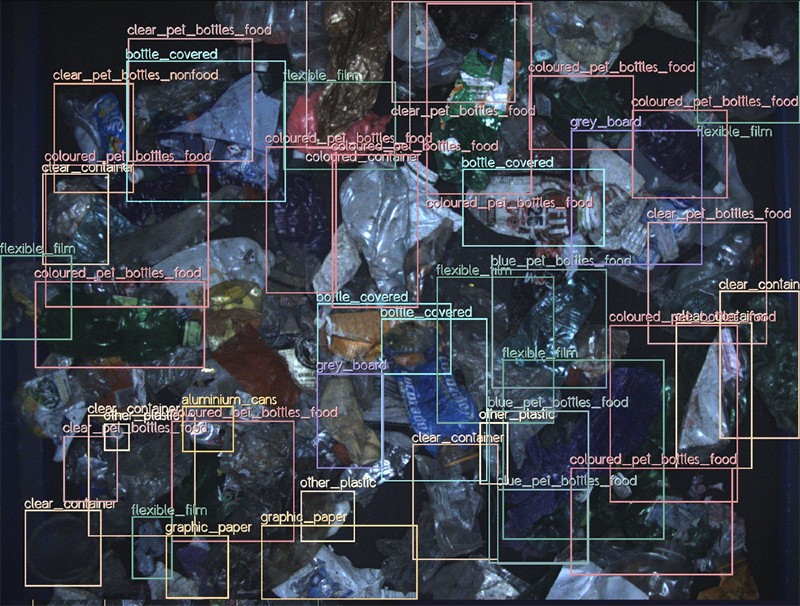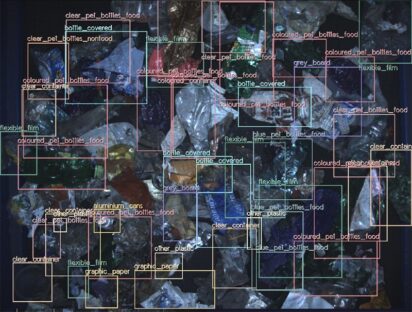Ten teams across the country have been chosen as finalists of the inaugural Manchester Prize, a prestigious challenge prize rewarding breakthroughs in artificial intelligence for public good.
Announced by the Prime Minister at the AI Seoul Summit, the finalists will each receive a share of £1 million to develop their solutions over the next eight months.
Additionally, they will benefit from comprehensive support packages, including funding for computing resources, investor readiness support and access to a network of experts, positioning them for success in the pursuit of the £1 million grand prize in spring 2025.
Focusing on energy, environment, and infrastructure in its inaugural year, the teams are working on breakthroughs in AI which could help address food security, improve how solar energy flows into the electricity grid and revolutionise battery manufacturing.
“This prize puts brilliant British AI innovation at the heart of addressing some of our biggest shared challenges,” said Viscount Camrose, Minister for AI and Intellectual Property.
“A decade-long commitment by the government, we are supporting our peerless AI talent with an annual £1 million grand prize to bring through the next wave of game-changing technological solutions.
“I look forward to seeing our finalists develop their solutions further over the coming months, as we look to harness the incredible potential of AI to bring about transformative change in the fields of energy, the environment, and infrastructure.”
The prize garnered nearly 300 entries.
The finalists
Aiolus (by the University of Warwick)
The UK aims to have 50GW of wind energy capacity by 2030 – however digital and control technologies have not kept pace to maximise the operational efficiency of wind farms. Aiolus leverages AI and creates digital twins to enhance wind farm operations and predict maintenance needs, boosting energy capacity, lowering the average cost of electricity for people and accelerating the UK towards its Net Zero target. Aiolus projects a 10-20% increase in power production, and a 3-5% rise in annual energy output.
AssetScan
Using AI to find and track defects in infrastructure and large buildings (by CC Informatics) – AssetScan by CC Informatics is an AI system which aims to identify defects in buildings and infrastructure assets from large photographic datasets, such as those collected by uncrewed aerial vehicles (drones), using an image-to-image processing technique. Manual review of these large datasets would be expensive and time consuming. AssetScan automatically detects changes in structure condition to target effective maintenance at the earliest opportunity.
CRE.AI.TIVE (by Phytoform Labs)
With the impacts of climate change threatening global food security, Phytoform Labs uses its proprietary CRE.AI.TIVE platform to discover drought tolerant, disease resistant and yield boosting traits for a diverse variety of crops. CRE.AI.TIVE is a ‘foundational genomics model’, that learns about the genome of plants and accelerates the search for useful mutations to increase the resilience of crops.
EvoPhase Explore (by Evophase)
EvoPhase Explore, is an innovative AI-driven solution designed to optimise the design and operation of industrial equipment. It leverages evolutionary algorithms to reduce energy consumption, minimise waste, and enhance overall efficiency in manufacturing processes. HARPPP (Highly-Automated Rapid Prototyping for Particulate Processing) is the proprietary AI technology behind EvoPhase Explore, employing evolutionary algorithms and four-dimensional modelling to optimise equipment designs and processing conditions. Allowing for scalability through new equipment design and retrofitting existing equipment for enhanced performance.
gAIn Water (by UKCRIC)
gAIn Water leverages advanced predictive AI technologies to integrate real-time sensor data from the UK’s water network with environmental and demographic inputs, including weather, soil conditions, pipe integrity, and population trends. This facilitates precise water demand forecasts, timely alerts for system failures, and identification of potential supply shortages. The system dynamically optimises water flow and maintenance schedules to significantly reduce leaks and lower energy consumption, offering measurable benefits to water utilities, governing bodies, and communities across the UK.
Greyparrot Insight (by Greyparrot.ai)
The Greyparrot AI waste analytics system (pictured, main image) “sees’’ and tracks every piece of waste entering a sorting or recycling plant via monitoring units positioned over conveyor belts. The AI identifies seven layers of detail about each waste item – including the material type, brand and carbon footprint based on its end of life – and does this faster, more accurately, and around 250 times cheaper than manual alternatives. It aims to create a complete digital map of the world’s waste flows to track what happens when waste is discarded and support the value chain to improve packaging design, policy making and recycling rates.
Polaron
Accelerating the design of advanced materials with generative AI (by Polaron) – Developing advanced materials is a traditionally slow and inefficient process. Polaron uses AI algorithms to rapidly analyse potential material designs and identify the best manufacturing processes to maximise performance. Applied to battery electrodes, Polaron’s technology can yield a 10% increase in power, while reducing the cost by more than 50%, revolutionising battery manufacturing and unlocking the next-generation of materials.
Quartz Solar AI Nowcasting (by Open Climate Fix)
Due to cloud cover, solar power generation can be unpredictable. This entry uses AI to forecast cloud formation hours ahead of time, allowing solar energy to be more efficiently integrated into the electricity grid through better prediction of periods of intermittent supply. By leveraging satellite imagery and live solar generation data, it helps better manage solar energy resources and balance a renewables heavy grid. This more efficient approach to renewable energy management can help the UK to decarbonise faster.
Sapphire
Improving river and bathing water quality (by HR Wallingford) – Increasing urbanisation and changes to rainfall patterns due to climate change are putting greater pressure on the UK’s wastewater network, impacting water quality in our rivers. Sapphire, created by HR Wallingford, will be an AI tool to help reduce water pollution from storm overflows, agriculture, and urban spaces. It will integrate observed data and computer model outputs into an AI platform, incorporating more sources of pollution, and producing faster results than traditional methods. It aims to enable water companies to better understand the impact of storm overflows and manage flows more effectively, ultimately resulting in better water quality across the nation.
TraffEase (by Transhumanity)
Cities generate vast amounts of transport and urban mobility data, but too often its complexity means little is done with it. TraffEase AI integrates this multi-source data to provide predictive traffic analytics to inform decision making for efficient and green mobility. The platform supports intuitive natural language queries, making it accessible for non-experts. This empowers city authorities to effectively manage transport to enhance the journey experience for the public.


